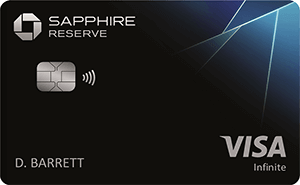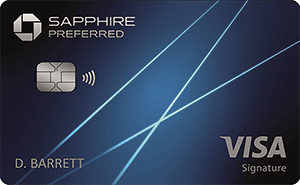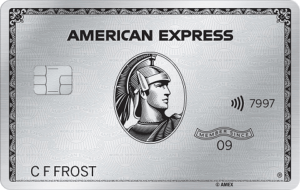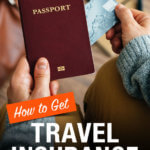Most of us are used to insuring all of our big expenses, yet travel insurance is something most people skip over when booking travel. Whether the airline loses your bag, your trip is canceled due to an emergency, or delayed for several hours, credit card travel insurance can make these situations less stressful. If you’re unfamiliar with travel insurance and wondering how it differs from the coverage offered by premium credit cards, we’ll cover all of that and more.
What is covered by credit card travel insurance?
Many rewards credit cards nowadays offer different types of travel insurance when you use your card to book. The types and amounts of coverage vary depending on the card, and not all travel companions will be covered, so it’s important to review the information before booking your trip. With the right credit card you can get all of the following covered without paying extra:
Trip Cancellation/Interruption Insurance
Trip Cancellation/Interruption Insurance reimburses non-refundable travel expenses in the case of cancellation due to sickness, severe weather, etc.
Trip Delay Reimbursement
Trip Delay Reimbursement covers unreimbursed expenses incurred during travel delays. Coverage varies by card, with the length of the delay ranging between 6-12 hours or requiring an overnight stay. Reimbursable expenses normally include meals, lodging, toiletries, and other personal expenses necessary during a delay.
Emergency Medical and Dental
Emergency Medical and Dental coverage provides reimbursement if you or a family member get sick during a trip. In addition to covering medical and dental expenses up to a certain amount, the policy may also cover hotel expenses during a medically-necessary recovery period. This coverage does not apply if you’re already traveling for medical or dental treatment, and it’s only offered on a few cards, such as the Chase Sapphire Reserve. We cover this more below.
Emergency Evacuation & Transportation
Emergency Evacuation & Transportation coverage can be very valuable in case of illness or emergency evacuations. The cost of emergency transportation (i.e. air and land ambulance, private motor vehicles, etc.) is covered, along with medical services necessary for the evacuation. As you can imagine, this can get quite costly, and receiving this coverage in exchange for charging travel to a specific credit card is a small trade-off.
Lost Luggage Reimbursement
Airlines mis-handle nearly 25 million bags a year, and if you’re part of this unlucky statistic, replacing your belongings can be stressful and expensive. With Lost Luggage Reimbursement from a card like the Chase Sapphire Reserve, you and your immediate family members will be reimbursed up to $3,000 for lost or damaged checked bags. The Platinum Card® from American Express Baggage Insurance Plan covers both carry-on and checked-luggage.
Baggage Delay Insurance
If your luggage is delayed rather than lost, your credit card may reimburse you for expenses incurred during this period. Currently, this benefit is offered by the Chase Sapphire Preferred. Cardholders can claim up to $100 per day, up to five days for essential coverage for baggage delays exceeding 6 hours.
Auto Rental Collision Damage Waiver
Auto Rental Collision Damage Waiver provides coverage in case of theft or collision damage involving rental cars in the U.S. The majority of credit cards offering this benefit provide secondary coverage. That means if you’re involved in an accident, your own insurance company has to deny coverage before your credit card coverage kicks in.
If your credit card provides primary auto rental collision coverage, then you don’t have to worry about getting your own insurance involved or purchasing coverage at the rental desk. If you’re looking for a credit card that offers primary auto rental collision coverage, both the the Chase Sapphire Preferred is your best bet, as it includes a huge welcome bonus of 60,000 points (worth $750) after spending $4,000 in the first 3 months, and has other money-saving features like no foreign transaction fees. It's our #1 travel credit card for a reason.
What isn’t covered by credit card insurance
The most notable benefit missing from most credit cards is medical insurance. The only card in our list that includes it is the Chase Sapphire Reserve, with a hefty annual fee of $550. Medical insurance is essential for any trip – just take it from our co-founder Jen, who ended up in a $2,000/night hospital. Accidents can easily happen, and you don’t want to end up stranded in a foreign country owing thousands of dollars in medical fees.
The Reserve’s medical insurance also only covers up to $2,500 in medical expenses, where coverage from World Nomads can go up to $80,000, and even include emergency dental (this depends on your country of residence and your destination. Get a free quote for the exact amount.) A week of coverage from World Nomads is usually less than $100 and includes many other insurance benefits credit cards include, such as trip cancellation/delay, and baggage loss. So for total peace of mind, it’s still a good idea to purchase this coverage, especially when travelling internationally.
Credit card insurance doesn’t cover every loss, so it’s important to be aware of the restrictions. Generally, any trip that isn’t at least 100 miles from your home isn’t covered. Neither are avoidable events. For example, if you book travel during a hurricane after warnings were issued and airlines offered cancellation fee waivers, your credit card insurance will not cover your losses.
Some credit card cards will also deny coverage if your trip is less than 5 days or longer than 60. Travel in a war zone is another instance where coverage will be denied.
Even if your trip is technically eligible for credit card insurance coverage, you may be denied if you don’t follow the correct procedure. In the case of Emergency Evacuation & Transportation coverage offered by the Chase Sapphire Reserve, you must call the benefits administrator for pre-approval in order to claim this benefit. You will not be reimbursed if you make your own arrangements and notify your credit card company afterwards.
Which credit cards offer travel insurance?
Chase Sapphire Reserve
 The Chase Sapphire Reserve is probably the best rewards card for travel purchases, thanks to a comprehensive travel protection package covering virtually all aspects of your trip, including medical insurance. Coverage applies to both cardholders and immediate family members, regardless of whether the cardholder is traveling with them or not.
The Chase Sapphire Reserve is probably the best rewards card for travel purchases, thanks to a comprehensive travel protection package covering virtually all aspects of your trip, including medical insurance. Coverage applies to both cardholders and immediate family members, regardless of whether the cardholder is traveling with them or not.
In addition to this, the card also has a substantial welcome bonus of $900 points after meeting the minimum spend of $4,000 in the first 3 months, and no foreign transaction fees. The card’s flexible rewards program makes it possible to redeem travel for direct bookings through the Ultimate Rewards Travel portal or transfer them to one of 13 airline and hotel partners. In addition to earning 3 points per $1 spent on all your travel purchases, the Chase Sapphire Reserve gets you the following travel insurance benefits:
| Card Feature | Details |
| Annual Fee | $550 |
| Trip Cancellation/Interruption Insurance | $10,000 per person/$20,000 per trip. |
| Auto Rental Collision Damage Waiver | Provides primary coverage, up to $75,000 for theft and collision. Not applicable to rental periods exceeding 31 consecutive days. |
| Lost Luggage Reimbursement | Up to $3,000 per passenger, per trip. Benefit applies to cardholder and immediate family members. |
| Trip Delay Reimbursement | Covers up to $500 per ticket during travel delays of 6 hours or more. |
| Emergency Evacuation & Transportation | Up to $100,000. Benefit is applicable to trips between 5 – 10 days in length and 100 miles or more from home. |
| Emergency Medical and Dental Benefit | Reimburses emergency medical and dental treatment cost, up to $2,500 per person. Coverage includes $75 per day (up to five days) for hotel expenses, when medically necessary. |
| Other notable travel benefits | – Annual $300 travel credit. – 3x points on travel and dining worldwide. – Up to $100 TSA/Precheck credit every 4 years. – No foreign transaction fees. |
Chase Sapphire Preferred
 The Chase Sapphire Preferred offers many of the same benefits as the Reserve, with the exception of emergency medical insurance and emergency evacuation and transportation. Cardholders do receive access to an emergency assistance line that provides medical and legal referral services, but it is more of a concierge service, and you are still responsible for paying for the services.
The Chase Sapphire Preferred offers many of the same benefits as the Reserve, with the exception of emergency medical insurance and emergency evacuation and transportation. Cardholders do receive access to an emergency assistance line that provides medical and legal referral services, but it is more of a concierge service, and you are still responsible for paying for the services.
| Card Feature | Details |
| Annual Fee | $95 |
| Trip Cancellation/Interruption Insurance | $10,000 per person/$20,000 per trip. |
| Auto Rental Collision Damage Waiver | Provides primary coverage up to the cash value of the rental car. Not applicable to rental periods exceeding 31 consecutive days. |
| Baggage Delay Insurance | Up to $100 per day, maximum 5 days. Covered parties include the cardholder, immediate family and spouse or domestic partner. |
| Trip Delay Reimbursement | Covers up to $500 per ticket for the cardholder and family members during travel delays over 12 hours or requiring an overnight stay. |
| Travel and Emergency Assistance Services | Benefit applies to cardholder, spouse or domestic partner and dependent children under age 22. |
| Other notable travel benefits | – 5x points on air travel and 10x points on hotels and car rentals purchased through Chase Ultimate Rewards (after using the full travel credit). – 3x points on dining. – 2x points on other travel purchases. – No foreign transaction fees. |
The Platinum Card® from American Express
 The Platinum Card® from American Express card currently excludes emergency medical insurance but does provide most of the basics, like travel accident insurance, car rental coverage, baggage insurance and access to the Premium Global Assist Hotline.
The Platinum Card® from American Express card currently excludes emergency medical insurance but does provide most of the basics, like travel accident insurance, car rental coverage, baggage insurance and access to the Premium Global Assist Hotline.
| Card Feature | Details |
| Annual Fee | $695 (See Rates and Fees) Terms apply. |
| Car Rental Loss & Damage Insurance | Provides secondary coverage in case of vehicle theft or collision. This benefit excludes vehicle rentals in Australia, Italy and New Zealand as well as rental periods exceeding 30 days.
Eligibility and Benefit level varies by Card. Terms, Conditions, and Limitations Apply. Please visit americanexpress.com/benefitsguide for more details. Underwritten by AMEX Assurance Company. Car Rental Loss or Damage Coverage is offered through American Express Travel Related Services Company, Inc. |
| Travel Accident Insurance | Provides up to $500,000 in case of accidental death or dismemberment. |
| Baggage Insurance Plan | Provides up to $3,000 per person, per trip for carry-on baggage and $2,000 for checked baggage. This benefit is limited to a combined $3,000 per person, per trip.
Eligibility and Benefit level varies by Card. Terms, Conditions, and Limitations Apply. Please visit americanexpress.com/benefitsguide for more details. Underwritten by AMEX Assurance Company. |
| Premium Global Assist Hotline | Applicable to travel more than 100 miles from home.
Eligibility and Benefit level varies by Card. Terms, Conditions, and Limitations Apply. Please visit americanexpress.com/benefitsguide for more details. If approved and coordinated by Premium Global Assist Hotline, emergency medical transportation assistance may be provided at no cost. In any other circumstance, Card Members may be responsible for the costs charged by third-party service providers. |
| Other notable travel benefits | – Annual $200 airline fee credit.
– Annual $200 Uber Cash. – Up to $85 statement credit every 4.5 years for TSA PreCheck or receive a statement credit $100 every 4 years credit for Global Entry. – 5x points on travel (restrictions apply). – Global Lounge Collection access. – Hilton and Marriott Gold elite status. (Enrollment required) – No foreign transaction fees. (See Rates and Fees) |
Credit card travel insurance versus third party insurers: Which is better?
As mentioned, the most important travel insurance to have is medical – and we speak from experience, since our co-founder Jen once found herself in a $2,000/night hospital. The only credit card in our list offering medical coverage is the Chase Sapphire Reserve, but there’s a hefty $550 annual fee, and the card only provides $2,500 in coverage compared to $100,000 from World Nomads (The exact amount depends on your country of origin and destination. Use the widget below to get an exact quote.) Owing thousands of dollars in medical fees is not the way you want to spend your vacation.
A better strategy might be to get the Chase Sapphire Preferred, then purchase a World Nomads insurance plan when you need medical coverage. This card only has a $95 annual fee that pays itself off with the 60,000 point welcome bonus (worth $750 through Chase Ultimate Rewards). It still includes most other insurance, like trip cancellation, baggage delay, and auto rental collision damage, so for domestic trips, it might be all you need. And of course, you'll save even more money with no foreign transaction fees, and by earning points on all of your purchases. Then when you take an international trip, you can purchase World Nomads insurance to cover any medical expenses with peace of mind, often for less than $100 for the week.
Use the calculator below to find an exact quote for your trip:
It’s also important to note that credit card travel insurance only applies to trips that you’ve booked entirely with your credit card. That’s not always possible for everyone. Nowadays, booking trips on installment plans is becoming popular. If you’re not able to pay for your entire flight or hotel booking with your credit card, or you simply forgot, then buying travel insurance through World Nomads can be an affordable alternative. They’re also one of the few companies that lets you purchase coverage after your trip has started, so if you never gave travel insurance a thought, it’s never too late.
The coverage provided by World Nomads is extensive and includes everything you can get through a credit card and more, and usually with higher claim limits. The claims process is also straightforward as you can do it online. If you want peace of mind without having to check the fine print on various credit cards to figure out your coverage options, World Nomads is a hassle-free and affordable alternative.
How do I make a travel insurance claim through my credit card?
The claims process for credit card travel insurance varies by issuer. Chase customers can go to the eclaims website to file and track travel insurance claim. Some benefits, like Emergency Evacuation & Transportation, require that you call the benefits administrator for prior approval.
American Express requires cardholders to file a claim over the phone and then provide written documentation via mail. It’s important to file a claim right away, since credit card companies have various deadlines around when a claim must be filed.
The Thrifty Gist
- Credit card travel insurance is a great start, but coverage has restrictions and may not be sufficient, depending on your travel plans.
- The Chase Sapphire Reserve offers the most comprehensive credit card travel insurance benefits that include $2,500 in medical coverage, but comes with a hefty $550 annual fee.
- A more thrifty approach is to get the Chase Sapphire Preferred with a welcome bonus of 60,000 (worth $750) and a ton of other benefits. Then, when you need medical coverage for a trip, purchase a World Nomads plan, often for less than $100 for a week.
- World Nomads is our #1 travel insurance recommendation, thanks to affordable rates, the ability to purchase or extend even after your trip has started, and a huge number of benefits. These include medical coverage, trip cancellation/delay coverage, baggage delay, and adventure sports.
Thrifty Nomads has partnered with CardRatings for our coverage of credit card products. Thrifty Nomads and CardRatings may receive a commission from card issuers. Opinions expressed here are author's alone. Responses are not provided or commissioned by the bank advertiser. Responses have not been reviewed, approved or otherwise endorsed by the bank advertiser. It is not the bank advertiser's responsibility to ensure all posts and/or questions are answered.




